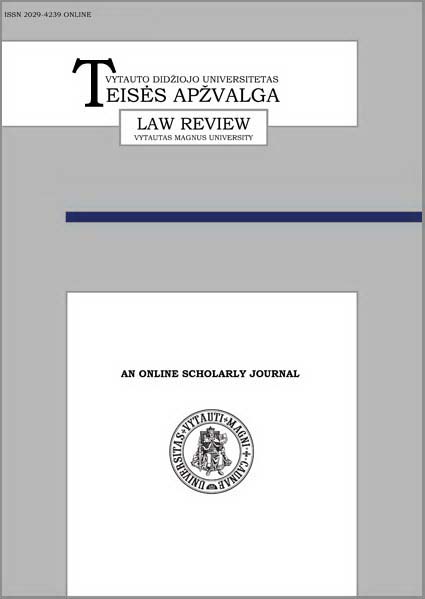Ar darbas ypatingai išnaudojančiomis sąlygomis užtraukia baudžiamąją atsakomybę Lietuvoje?
Does Lithuanian Law Impose a Criminal Liability for a Particularly Exploitative Working Conditions?
Author(s): Ieva KaralienėSubject(s): Law, Constitution, Jurisprudence, Labor relations, Criminology
Published by: Vytauto Didžiojo Universitetas
Keywords: Labor exploitation; particularly exploitative work conditions; worker‘s abuse; forced labor; work and services against one's will;
Summary/Abstract: As a result of implementing EU directive 2009/52/EC a new article showed up in Lithuanian criminal codex. It is article No. 292(1) which among all the other provisions imposes a criminal liability for a particularly exploitative working conditions. This definition is not explained in the national codex but it is directly transferred from the directive above. The problem is that this directive is issued for a certain purpose which is to prevent an illegal immigration in EU territory and to protect third–country nationals, as they are considered as vulnerable, from particularly abusive activities, such as discrimination and striking disproportion of employment terms compared with legally employed workers which affects worker‘s health and safety and which offends against human dignity. As this provision is a quite new thing in Lithuania there is no jurisprudence regarding its application which most likely will create some difficulties in the means of it‘s qualification as the definition in some way replicates another provision imposing criminal liability for a forced labor under article No. 147(1). In a certain circumstances there is a need to make a research on this new provision especially on its definition “particularly exploitative working conditions “and find out whether there is an imposed criminal liability for such a violation in general not only concerning specific group of people – illegal third-country nationals. The research is focused on the related Lithuanian criminal provisions (No. 176, 147, 147(1), 292(1)) and their application. It shows that criminal provisions are for a very narrow application and do not apply to protect Lithuanians or other EU nationals from the labor exploitation in general. In fact it is discriminating them as the existing provision protects only third-country nationals.
Journal: Teisės apžvalga
- Issue Year: 2019
- Issue No: 1(19)
- Page Range: 45-68
- Page Count: 24
- Language: Lithuanian

